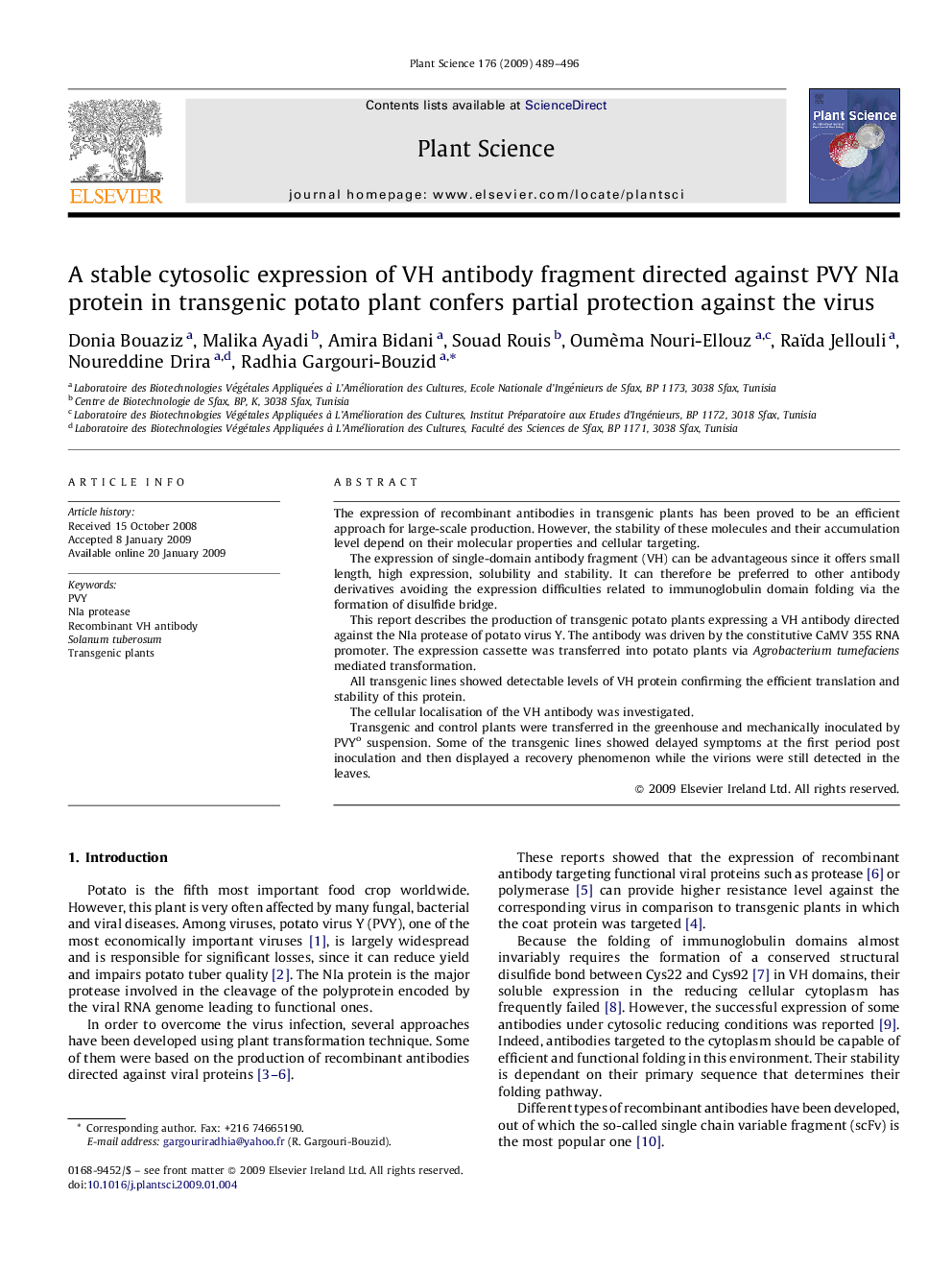| Article ID | Journal | Published Year | Pages | File Type |
|---|---|---|---|---|
| 2018236 | Plant Science | 2009 | 8 Pages |
The expression of recombinant antibodies in transgenic plants has been proved to be an efficient approach for large-scale production. However, the stability of these molecules and their accumulation level depend on their molecular properties and cellular targeting.The expression of single-domain antibody fragment (VH) can be advantageous since it offers small length, high expression, solubility and stability. It can therefore be preferred to other antibody derivatives avoiding the expression difficulties related to immunoglobulin domain folding via the formation of disulfide bridge.This report describes the production of transgenic potato plants expressing a VH antibody directed against the NIa protease of potato virus Y. The antibody was driven by the constitutive CaMV 35S RNA promoter. The expression cassette was transferred into potato plants via Agrobacterium tumefaciens mediated transformation.All transgenic lines showed detectable levels of VH protein confirming the efficient translation and stability of this protein.The cellular localisation of the VH antibody was investigated.Transgenic and control plants were transferred in the greenhouse and mechanically inoculated by PVYo suspension. Some of the transgenic lines showed delayed symptoms at the first period post inoculation and then displayed a recovery phenomenon while the virions were still detected in the leaves.
